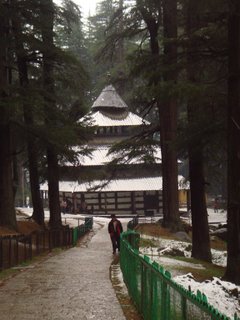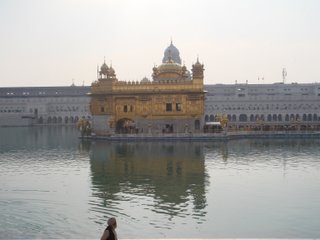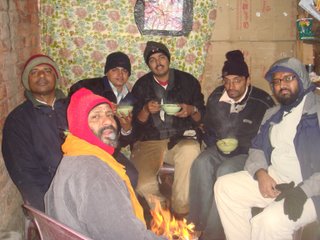
Since a long time, i've been wondering why most of our more popular temples are built on top of hills or in places that are not easily accessible.
Or is it the other way round- because a temple is difficult to reach, it becomes more important??
In fact, we value more the things which are not easily available. To put it another way, the more restricted access is to something, the higher goes it's value.
Think first day first show cinema tickets, Liquor during probation. Gas cylinders, Ration card stocks, Passport applications, Visas to the US, BSNL Mobile cards, NCERT Books, Admissions into schools of repute, a glimpse of our local MLA after election!! etc etc. And, we ourselves create more demand than supply and make sure there is a black market created for each of the above!
Now, going back to temples, i think god went up and sat on mountains, so that atleast when we go up to see him, we'll give some exercise to our out-of-shape bodies!
Mostly, this tendency of gods going up onto hills is in the Northern part of our country. So, it's easier to reach gods in South India as most of the places of worship are in the plains or near the sea. Probably god wants South Indians to be plump and roly-poly (and we happily oblige)!
The photo attached is of probably the most beautiful temple i've seen. It's called Hidimba Devi (built in respect of Hidimba Devi, wife of Bhima and mother of Ghatotkacha), near Manali in Himachal Pradesh. As you cannot see from the photo, it is located right in the midst of snow-covered hills and in a restricted forest of trees touching the sky (in fact, they look like broom sticks used to clean the sky of cob-webs!)
The temple is extremely ancient and in the altar, there is a cave, which is below ground level, where there's a continuous holy fire burning. Phenomenal place!!
Also, in the adjoining forest, there is a huge huge tree, which happens to be the shrine of Ghatotkacha! (In fact, the board there says open air temple- that's a first for me!)
More info here http://en.wikipedia.org/wiki/Hidimba_Devi_Temple

